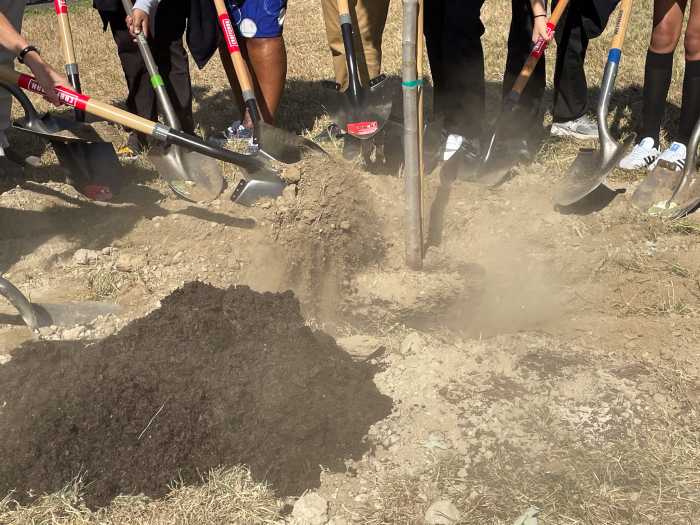BAHAMAS
The Bahamas government has lifted the travel ban on Haiti and Cuba imposed on the two Caribbean countries.
Flights have recently resumed to Haiti and Cuba.
The announcement was made by the prime minister’s press secretary, Clint Watson, who said the airline Bahamasair had returned its flights to Haiti.
He said there would be two flights per week — one to Cap Haitien and the other to Port-au-Prince, which will be on Saturdays.
There will be four flights to Cuba every week.
The original ban on Haiti in February was explained as a decision to block travelers for three weeks as Haiti celebrated Carnival.
At the time, few countries in the region had begun vaccination campaigns.
The Bahamas received its first tranche of vaccines in early March, along with many countries in the region.
Haiti was left behind in the global and regional campaign effort.
The impoverished nation has yet to vaccinate more than one percent of its population.
Watson said the Bahamas has fully vaccinated over 40 percent of its population, less than two percent of Haiti’s population has been vaccinated.
BARBADOS
The Barbados government has relaxed the hours of curfew that was imposed in the wake of the COVID-19 pandemic.
In making the announcement, Prime Minister Mia Mottley said the curfew will be moved from 9 pm (local time) to midnight starting from midnight on Monday, Nov. 15.
The prime minister said that following consultant with various stakeholders it has been agreed that the curfew hours will be shortened and reviewed every four weeks during which persons will be encouraged to be vaccinated and maintain the protocols.
She said the easing of the curfew is no excuse for people to abandon in particular mask wearing or the other things that are necessary to keep safe.
Mottley told reporters that the concessions regarding the curfew are in response to several requests from across the country.
CARIBBEAN
As several Caribbean countries battle their highest rates of COVID-19 — Trinidad and Tobago has the highest rates of infection and deaths — the Pan American Health Organization (PAHO) said 29 percent of the CARICOM population is at a higher risk of developing severe strains of the disease.
It is the consequence of these Caribbean citizens having at least one underlying health condition.
At PAHO’s recent press briefing on COVID-19 in the Americas recently, Incident Manager for COVID-19, Dr. Sylvain Aldighieri said the data shows that comorbidities are factors associated with severity.
He said based on studies, PAHO knows that 22 percent or approximately 145 million people in Latin America and the Caribbean have underlying health conditions.
“Regarding the Caribbean countries that are part of the Caribbean community: CARICOM, where we have observed the highest prevalence of cardiovascular diseases, including hypertension, diabetes mellitus and chronic kidney disease, the estimation of the Pan American Health Organization, in collaboration with the London School of Medicine and Tropical Medicine, is that we have up to 29 percent of the population with at least one underlying condition, therefore being risk of severe COVID-19,” he said.
The PAHO incident manager noted that while many of the Caribbean’s larger islands are experiencing a downward trend, smaller islands such as St. Kitts and Nevis, Barbados, Anguilla and St. Vincent and the Grenadines are now reporting their highest number of infections and related deaths.
GUYANA
The Guyana government has expressed concern about the influx of Venezuelan migrants at the Port of Kaktuma, east of the capital Georgetown.
According to reports, scores of Amerindians including children may have entered the Guyanese territory from a neighboring village in Venezuela in poor health and without food.
Several government agencies with a presence in the region have already responded with emergency interventions, providing immediate medical and food relief.
As an additional measure, the government said a ministerial team of central responders departed from the city for Port Kaituma with additional supplies. The team will coordinate with other stakeholders that have been involved in collaborative work to ensure a holistic intervention.
In a statement recently, the government said that it remains mindful of its humanitarian obligations to migrants and have been actively engaged in sustained efforts to deliver food and medical relief across the regions where migration into Guyana is taking place.
JAMAICA
Jamaican company Medicanja has got a major boost with an investment of US$15 million from US investor Noble Capital Fund and Dr. Trevor Hamilton
Minister of Industry, Investment and Commerce, Audley Shaw said this was part of a US$100 million investment the fund will make in Jamaican projects over the next three years.
Speaking at a media briefing, Shaw said this will enable Jamaica to access the global pharmaceutical market, which was valued at US$417.66 billion in 2020 and is expected to grow at 8.9 percent from 2020-2028,
He said the US$15 million will create more than 200 jobs in the short term and will deliver over US$10 million in annual exports.
Founded in 2013 by Dr. Henry Lowe, Medicanja is Jamaica’s first cannabis company and has 10 patents pending with the Jamaica Intellectual Property Office and 12 pharmaceutical products approved by the Jamaica Ministry of Health.
ST. KITTS
The International Monetary fund (IMF) said the impact of the COVID-19 pandemic on the economy of St. Kitts and Nevis had been “severe.”
After concluding Article IV consultation with St Kitts and Nevis, the executive board of the Washington-based financial institution recently that the complete halt in cruise ship arrivals and very few stay over tourists since the first quarter of 2020 “compounded on the pandemic’s impact on domestic activity.”
In a statement, the lending agency said the pandemic resulted in an estimated annual decline in gross domestic product (GDP) of 14 percent and the general government’s first fiscal deficit (4.7 percent of GDP) since 2010, “financed by drawing down sizeable deposit buffers.”
The IMF said an expected rebound in tourism sets the stage for a strong recovery from 2022 onward.
“However, the recovery path could be derailed should the pandemic lead to further sustained disruptions on the anticipated pace of tourism recovery and domestic activity,” the IMF warned.
TRINIDAD
Trinidad and Tobago recorded 984 COVID-19 cases, the highest number of confirmed infections in a single day last week.
The Ministry of Health also reported 17 new deaths from the virus, four of which occurred in Tobago.
Until now, the highest daily reported figure of positive cases was 781, reported on Nov. 17.
Last month, epidemiologist Dr. Avery Hinds warned that Trinidad and Tobago could begin seeing near 1,000 new cases of COVID-19 being recorded daily.
In the first three days of December, 2,398 cases have been confirmed. And with 17 deaths occurring on Dec. 3, the death toll for the first week of December went pass 100 cases as there were 26 deaths over the weekend.
Of the new deaths, four were patients in Tobago, bringing the toll to 128.
Tobago also reported 61 new cases, taking the island’s active cases to 788.
T&Ts overall death figure has climbed to 2, 236 and overall confirmed cases to 774,533 as of Dec. 5.
Earlier last week. the US Centers for Disease Control and Prevention (CDC) and the US Embassy in Trinidad and Tobago are advising Americas against traveling to T&T.
The CDC is the national public health agency of the USA.
T&T is not the only Caribbean country on the CDCs level 4 list of 79 countries.
Other Caribbean neighbours include Barbados, Antigua, St. Vincent and the Grenadines, St. Kitts and Nevis, Dominica and the Cayman Islands
— Compiled by Azad Ali

























